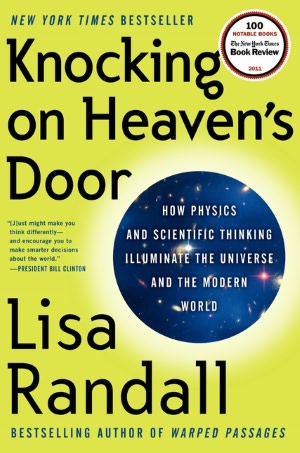 So I’ve had a crisis of faith, recently. And ironically, the person who unwittingly challenged my faith would probably be horrified to know that I have any kind of faith at all, even if it was in him and what he stood for. I refer to my recent article The Danger Facing Modern Physics, where I expressed my disappointment at Dr. Stephen Hawking’s assertion that philosophy is dead. The good thing is, his certainly is not the final word on the subject.
So I’ve had a crisis of faith, recently. And ironically, the person who unwittingly challenged my faith would probably be horrified to know that I have any kind of faith at all, even if it was in him and what he stood for. I refer to my recent article The Danger Facing Modern Physics, where I expressed my disappointment at Dr. Stephen Hawking’s assertion that philosophy is dead. The good thing is, his certainly is not the final word on the subject.
Realizing that was twenty bucks I was never going to get back, I finished his book, The Grand Design, with a heavy heart and a seriously shaken faith in the objectivity and open-mindedness of those in cutting edge physics. It was small comfort to see that another leading physicist whom I admire had also just published a new book. This was Dr. Lisa Randall, whose revolutionary 5-dimensional warped geometry theory serves as the scientific backdrop for my novel Virtues of War. Curious to learn if her recent work might further inspire my science fiction writing, I picked up a copy of her book Knocking on Heaven’s Door.
Funny enough, Dr. Randall also has an opinion on the differences between science and other human endeavours and she devotes a fair bit of time to discussing the different aspects of the quest for knowledge:
On pages 40-41, she writes that “humanity employs different methods and strives toward contrasting goals in the attempt to unravel the mysteries of life and the world. Art, science and religion – though they might involve common creative impulses – offer distinct means and methods of approach toward bridging the gaps in our understanding.”
Her dissertation continues mainly as a bold defence of the merits of science, mostly against the crazier assertions of various fundamentalist religious groups in the United States and at times she definitely seems to have an axe to grind (who can blame her – there are some wackos out there). But she also tries to explore non-scientific methods of study, and on page 66 begins her conclusion with the following statement: “This doesn’t mean that science necessarily will answer all questions. People who think science will solve all human problems are probably on the wrong track as well.”
The book moves on to discuss, amongst other things, how different scientific theories work best at different scales, and how physicists often develop models to better study aspects of a particular theory. Some models prove more effective than others, and with new evidence and insights models change or are replaced. Dr. Randall’s point is that models are just there to help describe what is happening, they help us make sense of what we’re discovering in nature. And she recognizes that the human factor is always at play; our own interpretations of the data may grow around the data themselves. She argues that “philosophical advances (concerning quantum mechanics) could affect the conceptual framework we use to describe predictions – but not the predictions themselves.” (Pg 194)
What was that? Philosophical advances? In physics? How about that…
I’d like to refer back to Dr. Stephen Hawking’s statement that philosophy is dead. No it isn’t. Philosophy is an integral part of our quest for knowledge. I might even be so bold as to say that philosophy IS our quest for knowledge, in whatever form or discipline that happens to be. But bringing it back to physics, once all the equations are written, the experiments are done, the data compiled, there is still the very real question: What Does This Mean? And I’m not talking about God, Nirvana or the Number 42 – I’m still talking physics. All the data are meaningless unless they’re put into a philosophical framework that we humans – or at least, the super-clever quantum physicists – can describe in a meaningful way.
So thank you, Dr. Lisa Randall. Not only did your extra-dimensional theory a few years back inspire this author to write some fairly nifty science fiction, your recent delve into the philosophy of physics restored my faith in your admirable profession.
Photo Credit:
Book Cover for Knocking on Heaven’s Door. Harper Collins Canada
Recent Bennett R. Coles Articles:
- A No-BS Tour of Modern Publishing Part 4 – The traditional industry: the bookstores (and distributors)
- A No-BS Tour of Modern Publishing Part III – The Traditional Industry: The Publishers
- A No-BS Tour of Modern Publishing Part II – Making sense of the lingo
- A No-BS Tour of Modern Publishing Part I – Author Motivations
- Star Wars: The Next Generation


Please Share Your Thoughts - Leave A Comment!